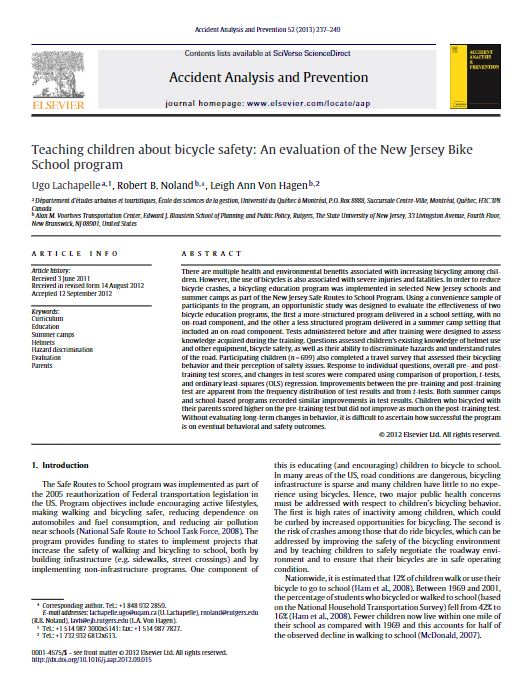Abstract
There are multiple health and environmental benefits associated with increasing bicycling among children. However, the use of bicycles is also associated with severe injuries and fatalities. In order to reduce bicycle crashes, a bicycling education program was implemented in selected New Jersey schools and summer camps as part of the New Jersey Safe Routes to School Program. Using a convenience sample of participants to the program, an opportunistic study was designed to evaluate the effectiveness of two bicycle education programs, the first a more-structured program delivered in a school setting, with no on-road component, and the other a less structured program delivered in a summer camp setting that included an on-road component. Tests administered before and after training were designed to assess knowledge acquired during the training. Questions assessed children’s existing knowledge of helmet use and other equipment, bicycle safety, as well as their ability to discriminate hazards and understand rules of the road. Participating children (n = 699) also completed a travel survey that assessed their bicycling behavior and their perception of safety issues. Response to individual questions, overall pre- and post-training test scores, and changes in test scores were compared using comparison of proportion, t-tests, and ordinary least-squares (OLS) regression. Improvements between the pre-training and post-training test are apparent from the frequency distribution of test results and from t-tests. Both summer camps and school-based programs recorded similar improvements in test results. Children who bicycled with their parents scored higher on the pre-training test but did not improve as much on the post-training test. Without evaluating long-term changes in behavior, it is difficult to ascertain how successful the program is on eventual behavioral and safety outcomes.
